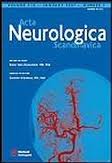 In this study, the authors evaluated facial memory ability (FMA) in patients with myotonic dystrophy type 1 (DM1). They also explored the relationship between FMA and neuropsychological data, disease-related factors, and CTG repeat expansion size. Patients with DM1 (n = 33) and healthy subjects (n = 30) were tested with the faces task of the Rivermead Behavioural Memory Test – Extended version (RBMT-E) and an additional set of neuropsychological tests. Clinical data were collected, and CTG repeat size was quantified in blood lymphocytes. Low results on the faces task were more common in patients with DM1 compared with healthy subjects (P < 0.05), with 36% of the patients showing a poor/impaired performance. DM1 patients with deficits in FMA performed significantly worse on tests measuring visual-construction ability and memory. Furthermore, these patients more often falsely recognised unknown faces as known. Deficits in FMA were not associated with any disease-related factor, including CTG repeat expansion size. These findings revealed deficits in FMA in the DM1 group, which was associated with reduced construction- and visual memory ability.
In this study, the authors evaluated facial memory ability (FMA) in patients with myotonic dystrophy type 1 (DM1). They also explored the relationship between FMA and neuropsychological data, disease-related factors, and CTG repeat expansion size. Patients with DM1 (n = 33) and healthy subjects (n = 30) were tested with the faces task of the Rivermead Behavioural Memory Test – Extended version (RBMT-E) and an additional set of neuropsychological tests. Clinical data were collected, and CTG repeat size was quantified in blood lymphocytes. Low results on the faces task were more common in patients with DM1 compared with healthy subjects (P < 0.05), with 36% of the patients showing a poor/impaired performance. DM1 patients with deficits in FMA performed significantly worse on tests measuring visual-construction ability and memory. Furthermore, these patients more often falsely recognised unknown faces as known. Deficits in FMA were not associated with any disease-related factor, including CTG repeat expansion size. These findings revealed deficits in FMA in the DM1 group, which was associated with reduced construction- and visual memory ability.
